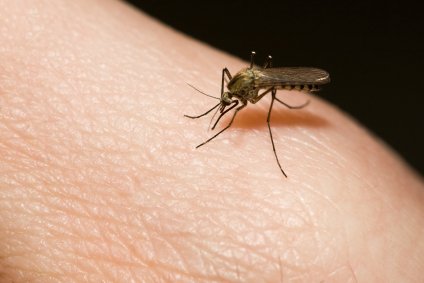Bangladesh is at risk of virus fever
Flu or diseases caused by the virus. There are almost all types of flu fever. Apart from these, symptoms of fever are also shown if other viruses such as Dengue, Chikungunya, Zika, Ebola and Nipah are attacked. In our country, fever is usually caused by influenza virus. This fever usually occurs in March-April. But this year many people have been affected by this fever. Now the intensity of viral fever is high. The condition of some viral fever patients is very difficult. The woes of these patients increased.
At present, virus fever has become a common health problem. However, it is important to identify any type of virus that has a fever. Although there are signs of viral disease like normal flu, there is a greater risk of complications. If possible, it is possible to avoid complications. However, these fevers are risky for children, elderly, pregnant women, diabetes sufferers, and people with heart problems, lungs and liver disease sufferers who have less immunity.
Chikungunya and dengue incidence have increased in Bangladesh. Many people are suffering from chikungunya in particular. Although Swine Flu and Bird Flu seem less likely to be swum, at least 19 patients suffering from swine flu H1N1 virus have been admitted in Dhaka, Thakurgaon, Naogaon, Narsingdi, Mymensingh, Comilla, Barisal and Dinajpur for treatment from January to April, official sources said. Earlier, from June 2009 to last year, several people died due to swine flu in different parts of the country. At that time the number of affected people was more than 10 thousand. Even in this year, the incidence of swine flu in other countries, including India, has become a terrible form.
Bird flu in the past years due to H5N1 virus has caused major damage to the poultry industry in many Asian countries including Bangladesh. In January this year infectious H5N1 bird flu virus was detected on two poultry farms in Dhamrai and Rajshahi. Rajshahi jhakake jhanke death has died. According to the research, five new countries of Bangladesh, including Bangladesh, are at risk of new virus H7N9, because poultry is being sold in open market in the densely populated areas of these countries.
Dengue incidences have been high in past years. Chikungunya Virus has taken place in mosquito body in Dhaka this year. In almost every family, some people have been attacked in Chikungunya. Edis Ezipati and Edis elbopicatus are two species of addis
Chikungunya, Dengue and Jika Virus spread by mosquitoes.
According to the World Health Organization, chikungunya people can be monkeys, bats, rats and birds, as well as monkeys and many other animals, dengue and zica virus act as the holder. People from these animals can be infected with this disease. Besides, people are also at risk of getting infected with these diseases. Pigs act as a mixture or container of various viruses. In our country there is health risk due to unplanned pig keeping. Therefore, it is important to monitor the health of pigs and pigs.
In our country, due to the potential of these viral diseases, there is a significant increase in the population, densely populated and unhealthy environment, unplanned infrastructure and mismanagement, water logging and lack of cleanliness and sanitation. Apart from this, due to globalization, rapid transit of people and commodities, unregulated border, climate change and global warming, mosquitoes and virus breeding and increasing insect resistance to insecticides can increase the resistance of mosquitoes by using insecticides.
In countries where these infectious diseases have become epidemic, special care and monitoring arrangements should be put in place for passengers from those countries. During the travel, passengers will have to collect information by providing general health declarations. Although the thermal scanner at the airport was supposed to be monitored by passengers, the study found that in a country with thermal scanner, it is not enough to accurately identify and prevent a person from viral fever, so suspects should take necessary steps.
Due to the non-proper implementation of the Contravention Act, imported cattle and animal products are entering the country without examination. There is no doubt that the sick and diseased livestock coming from the neighboring countries are creating health and health risks for the people and animals of the country. The infected animals can be exposed to the various parts of the country after being exposed to live or excreted animals. In addition, these animals eat blood, infected meat, intestines, liver, kidneys, brain, tumors, cysts or any other infected organisms, cats, dogs, foxes or any other carnivorous animals, which will later be known as healthy germs of these diseases And people are spreading. Mosquitoes, flies, acetas and spiders that come with imported diseased animals can spread to the inside of the country with the microbes.
Seasonal fever is not only considered as a normal fever or flu, but it is necessary to investigate the actual germination. Need to find the exact source of fever. In view of this, we should consider 'Health or One Health' without seeing the separation of human and animal health. All concerned, including the Health, Livestock Ministry, will work together. Otherwise, new diseases will start out.

Yikes. I sure don't like those little critters. 4 years back I contracted dengue fever in the Philippines. Thanks for the informative post. I am now following your blog. I am also resteeming this post. Great to have you on board here in Steemville Land. Cheers Doc.
thanks my steemit friend this information is very helpful for everyone,,,it's my pleasure....